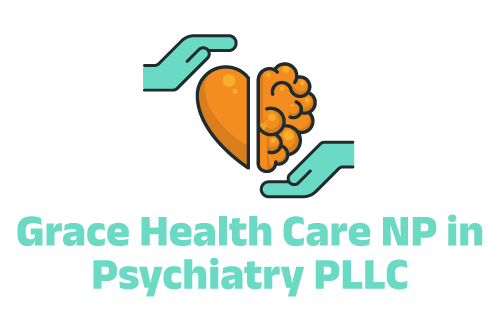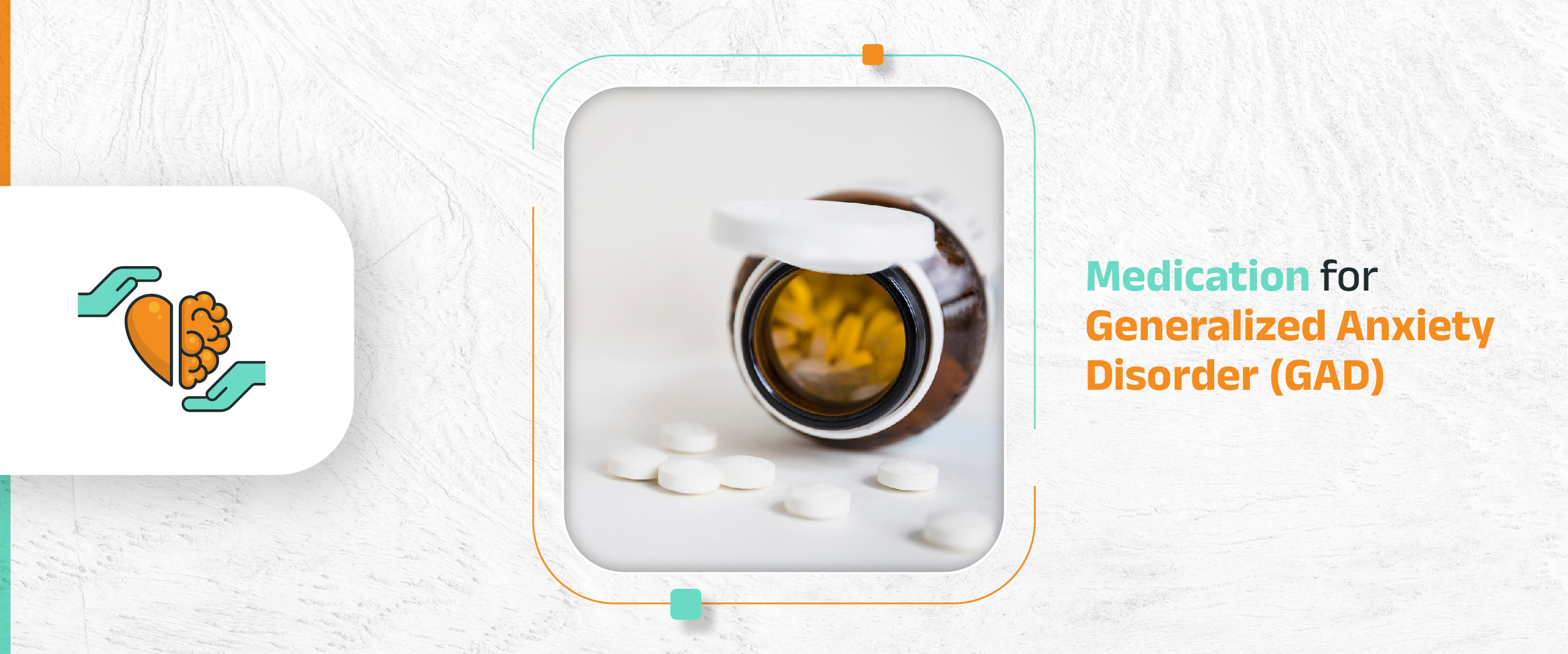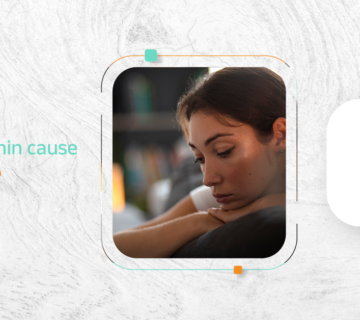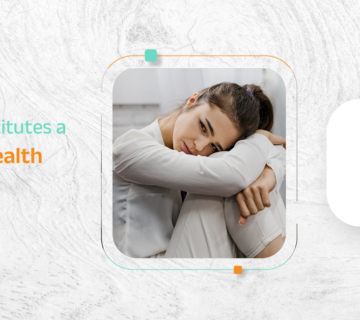Generalized anxiety disorder is common in the United States. It leads to excessive worry and can affect anyone.
Medication for generalized anxiety disorder is essential to managing it.
Grace Healthcare is ready to help. We treat anxiety and manage medications.
Our team reviews your medication for effectiveness and side effects. Contact us for more information.
We’re here to talk about GAD therapy and medicine alternatives to reduce your fears.
What Is Generalized Anxiety Disorder (GAD)?
GAD sufferers frequently feel an uncontrollable dread. Their anxiety could revolve around everyday stuff. Maybe work stresses them out, or health concerns.
This concerns work, health, social interactions, and daily tasks. The symptoms of GAD can include:
- Restlessness
- Fatigue
- Difficulty concentrating
- Irritability
- Muscle tension
- Sleep disturbances
Medication for Generalized Anxiety Disorder (GAD)
Many treatments for GAD aim at the brain’s emotional and stress related chemistry. Here are frequently given medications for GAD control:
-
Antidepressants for GAD
Antidepressants help with relieving anxiety and lifting depression. They’re useful for people struggling with generalized anxiety disorder and serious depression.
-
Selective Serotonin Reuptake Inhibitors (SSRIs)
People often use SSRIs to deal with generalized anxiety disorder. Their list includes:
- Paroxetine (Paxil)
- Sertraline (Zoloft)
- Escitalopram (Lexapro)
SSRIs let serotonin stay in the brain longer. This chemical handles feelings, sleep, and romance. By increasing serotonin, these medicines lower anxiety. When serotonin is low, worry can rise.
Most people handle SSRIs well, but some might experience side effects, such as:
- Drowsiness
- Headaches
- Nausea or vomiting
- Trouble sleeping
- Sexual dysfunction
SSRIs occasionally lead to significant problems, such as muscle rigidity. They can trigger serotonin syndrome.
-
Serotonin-Norepinephrine Reuptake Inhibitors (SNRIs)
GAD has another medication option, SNRIs. SNRIs resemble SSRIs. Instead of letting the brain soak up tons of serotonin like usual, SSRIs put a stop to it.
SNRIs do the same, but they also control norepinephrine intake. Norepinephrine plays a big part in feelings, sleep, remembering, waking up, and getting excited.
SNRIs, like Cymbalta and Effexor, also reduce worry. They function like SSRIs in the brain. Studies show they are equally effective for anxiety. However, SNRIs can cause side effects such as:
- Sweating
- Dry mouth
- Constipation
- Nausea or vomiting
- Dizziness
- Sleepiness
- Tiredness
- Sexual problems
- Monoaminexidase Inhibitors (MAOIs)
MAOIs are some of the first psychiatric medicines. They calm the nerves by stopping monoamine oxidase. This improves certain chemicals in the brain.
MAOIs work well on various anxiety and depression troubles but might prompt side effects.
These side effects could be mild, like feeling sick, being dizzy, having a dry mouth, or experiencing problems with sleep. More severe side effects might be:
- Hypomania (mild mania)
- High blood pressure
- Fainting or falling
- Weight gain
To minimize serious side effects, a low-salt diet, staying hydrated and smaller doses can help.
-
Other Medication
If SSRIs or SNRIs haven’t worked for your anxiety, don’t worry. There are more paths to walk. Consider adding another helpful medicine to your present regimen for better control over your symptoms.
-
Buspirone
Buspirone is often used alongside SSRIs or SNRIs when additional symptom control is needed. Side effects can include:
- Dizziness
- Drowsiness
- Nausea
- Pregabalin
Pregabalin (Lyrica), typically used for nerve pain, may also help with GAD. It can be taken alone or with other medications. Possible side effects include:
- Dizziness
- Tiredness
- Weight gain
Atypical Antipsychotics
Atypical antipsychotics treat bipolar disorder and schizophrenia effectively. Examples include:
- Olanzapine (Zyprexa)
- Aripiprazole (Abilify)
- Quetiapine (Seroquel)
They may help in reducing generalized anxiety disorder or GAD.
This is effective when mixed with other drugs like SSRIs or SNRIs. Usually, this route is chosen when SSRIs or SNRIs aren’t enough on their own.
But, these unusual antipsychotics can have side effects. Different drugs for generalized anxiety disorder cause other issues. For example, weight gain, high cholesterol, movement problems, or headaches could occur.
-
Benzodiazepines for GAD
It’s effective for short-term anxiety. Often, it’s combined with long-term medications. Examples include:
- Valium (diazepam)
- Xanax (alprazolam)
- Ativan (lorazepam)
Seen most often by generic or brand names, they’re commonplace tranquilizer prescriptions.
Benzodiazepines are recognized as safe by the FDA for handling signs of generalized anxiety disorder (GAD). They’re commonly advised as a short-term addition to consistent therapy.
Sometimes, they may be given “as required” for sudden anxious signs. You could use benzodiazepines for:
- Social anxiety before events
- Panic attacks
Benzodiazepines are controlled substances and carry serious risks, including:
- Impaired thinking
- Dependency and addiction
- Balance problems
Stopping long-term use can cause withdrawal symptoms. These include rebound anxiety, poor sleep, and depression.
Discuss benzodiazepine risks and benefits with your doctor. Ask about less addictive options and follow safe use instructions.
Choose the Best Medication for GAD
Finding the best medication for generalized anxiety disorder needs steps. Work with your healthcare provider. Consider your health, ongoing treatments, and possible side effects.
Your healthcare provider may begin with a low quantity and gradually increase it. This method helps them discover the best amount with minimum side effects.
Always remember to follow the given directions for your GAD medication. Always chat about any concerns or side effects with your doctor.
Therapy for GAD
-
Cognitive Behavioral Therapy (CBT)
CBT shows the link between thoughts and anxiety. With a therapist’s guidance, these thoughts can be transformed.
It doesn’t end anxiety but enhances life quality and confidence. A study shows that anxiety reduction through CBT stayed over time.
-
Therapies Based on Mindfulness
Mindfulness Based Cognitive Therapy (MBCT) blends mindfulness techniques with Cognitive Behavioral Therapy. Recent research studies show that anxiety reduction can be seen with MBCT. Signs show that it could also help in depression management.
-
Acceptance and Commitment Therapy (ACT)
ACT builds on CBT principles. It suggests avoiding anxiety makes it worse. Therapists teach you to face challenging thoughts and emotions. Research supports ACT’s effectiveness for anxiety.
The Role of Alternative Treatments
Along with traditional general anxiety disorder medication, some find relief in alternatives, like:
- Herbal Supplements: Considered herbal supplements such as valerian root or kava. Yet, always check with your medical professional before starting a new supplement. It’s crucial if you’re on GAD medication.
- Acupuncture: Acupuncture could potentially ease anxiety symptoms for some. This treatment uses thin needles inserted into particular body areas. Its goal is to encourage relaxation and equilibrium.
- Yoga and Meditation: Regular yoga and meditation practices can improve mental health. They reduce stress and promote calm.
Final Thoughts
Managing generalized anxiety disorder isn’t easy. However, the combination of medication for generalized anxiety disorder (GAD), GAD therapy, and lifestyle shifts can aid most in thriving.
Regular doctor check-ins, adherence to your strategy, and adjusting as necessary are crucial. It may take time to discover an effective treatment, and patience is vital.
However, easing GAD symptoms is achievable with diligence. Merging therapies with self-care results in a more robust, balanced existence.
FAQs
Q: Does low-dose prednisone cause insomnia?
Yes, taking low-dose prednisone could make sleep elusive for you. This problem can occur even when using minimal quantities.
Q: Can I use GAD medication when pregnant?
This varies depending on the medicine and your health situation. Some may endanger the baby, while others won’t. Always ask your doctor.
Q: If I’m feeling better, can I quit GAD medication?
No, you must always consult your doctor before stopping. Abruptly stopping can trigger withdrawal and returning anxiety. Your doctor can guide you in slowly stopping the medication safely.







No comment